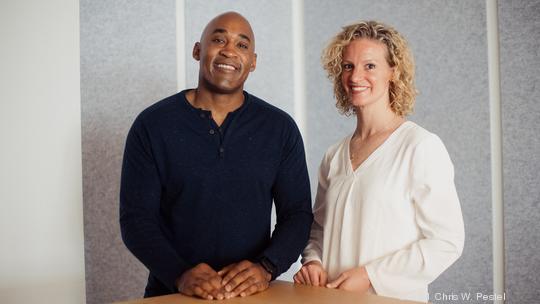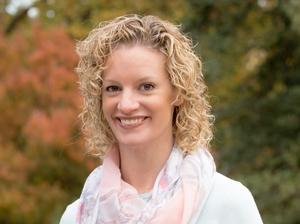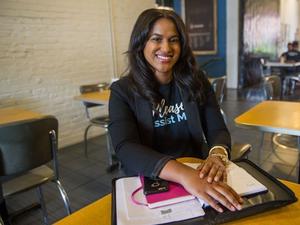
A D.C.-area investment platform for U.S. service academy graduates has started raising a $50 million fund — and is already deploying the capital.
The Academy Investor Network, the brainchild of military veteran duo Emily McMahan and Sherman Williams, hit the gas on fundraising at the start of 2021 for new dollars to support early-stage ventures. The network has already invested in three companies: Middleton, Wisconsin-based civic communication platform Polco, Chicago student loan company A.M. Money Inc. and San Francisco farming startup ClimateAI — with a fourth on deck.
AIN is targeting two categories for its portfolio: veteran-led startups in any sector and civilian-led tech companies that offer government applications. And it’s focusing on “traditionally underrated communities,” including people of color and women, as well as veterans.
“We love founders who have demonstrated leadership, grit and technical expertise through unique military experiences, education or professional experiences in the industry they seek to disrupt,” McMahan said. “These founders are often unique because they know how to deal with speed, ambiguity and think critically.”
AIN’s fund secured its first investment from New York venture capital firm Scout Ventures, for which McMahan is currently a part-time venture partner. That firm's portfolio companies include a local company that recently hit a billion-dollar valuation, McLean’s identity management startup ID.me, as well as more than a dozen exits.
Another substantial capital commitment, at $2.5 million, has come from United Services Automobile Association (USAA), McMahan said. The financial services group’s focus on military veteran entrepreneurs and underrepresented military communities who lack access to seed capital and mentor networks made it a good fit, she said. USAA's other investment companies include Raleigh, North Carolina-based drone technology company PrecisionHawk Inc., formerly led by Blackboard co-founder Michael Chasen, as well as ID.me.
“By helping AIN invest in these founders, USAA looks to make a broader impact on the education, employment and economic inequities that exist within military and local communities,” Harriet Dominique, chief diversity, equity inclusion and corporate responsibility officer at USAA, said in a statement.
Covid-19 only reinforced AIN’s work, particularly in “how municipalities best connect and engage with their citizens,” McMahan said. “For us, the pandemic heightened the urgency and need for critical commercial technologies that impact our government and our lives [and] communities.”
The partners aim to close the $50 million fund and invest in three to four more companies by year’s end, McMahan said.
McMahan and Williams teamed up to launch the Academy Investor Network in early 2020 to syndicate capital from alumni of the five publicly funded service academies serving the Army, Navy, Air Force, Coast Guard and Merchant Marines. From the start, they intended to back diverse founders and businesses — “and not fund the same companies over and over again,” McMahan told us in September. The organization also has an education element for service academy alumni new to the investment arena.
McMahan had previously run Capitol Post, an Alexandria nonprofit she started to connect service members with the region’s business community. That entity shut down in 2019 and became part of the D.C. chapter of Chicago-based Bunker Labs, a national nonprofit that connects veterans to the civilian entrepreneurship ecosystem. McMahan is now deputy director of the Common Mission Project, an Alexandria nonprofit with educational programs for mission-driven entrepreneurs.
She and Williams, a former Naval officer and investment banker, figured they were best suited to start up such a fund as veterans themselves. “Veterans are still considered a minority, believe it or not, so we realized one of the best ways to get this group and help raise it is to have the people in it fund it,” McMahan said.
AIN raises its fund alongside multiple other local VC firms doing the same, some similarly focused on founders often overlooked by the venture capital world. And that activity has resulted in a considerable influx of dollars to the region’s startup ecosystem.




